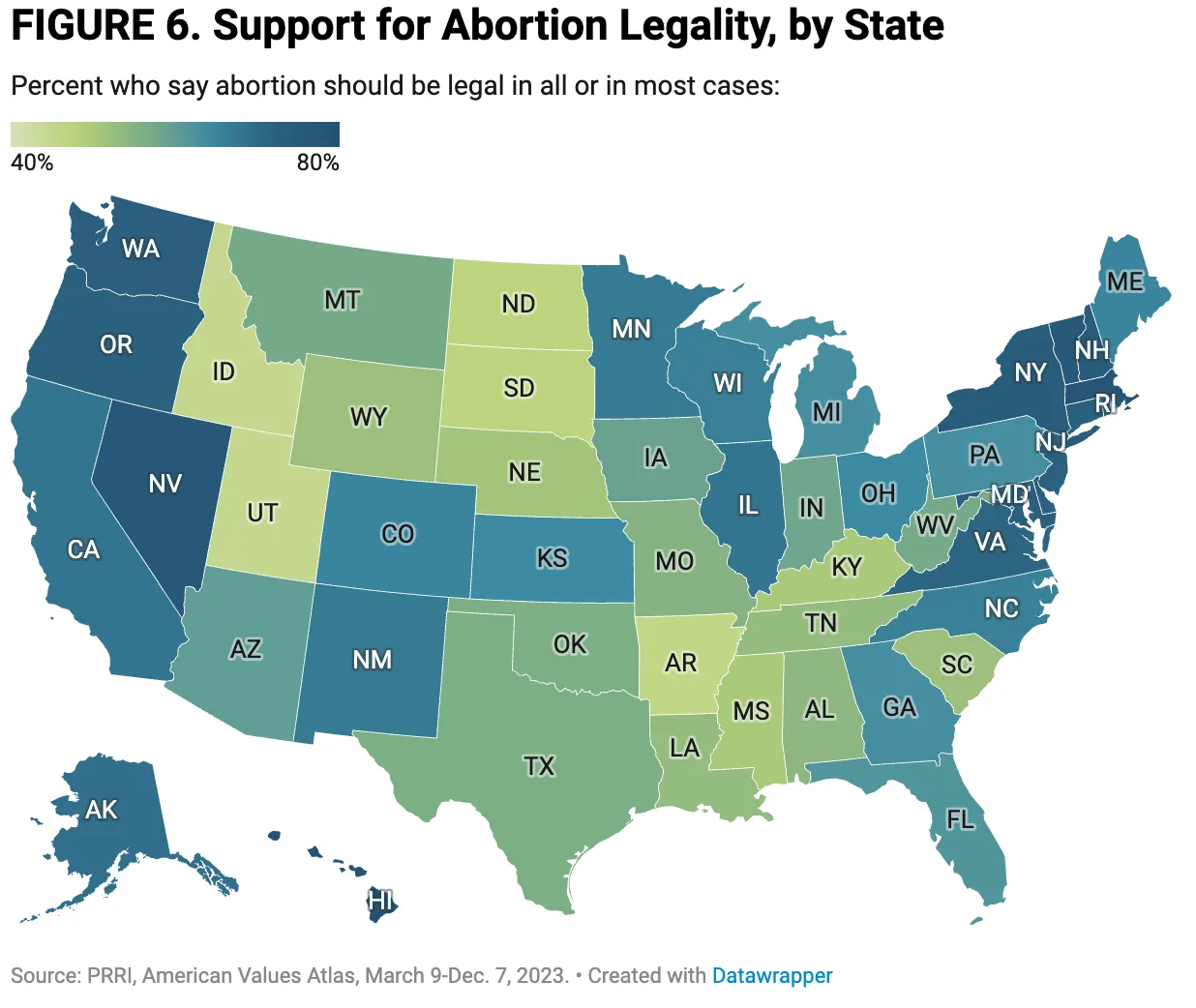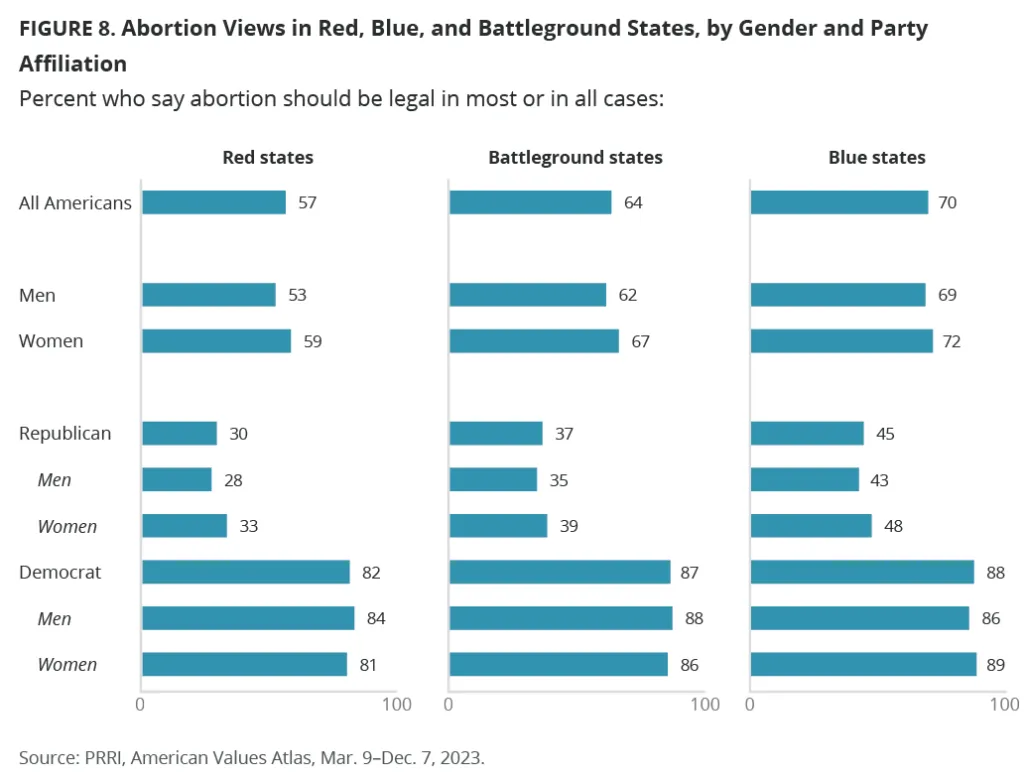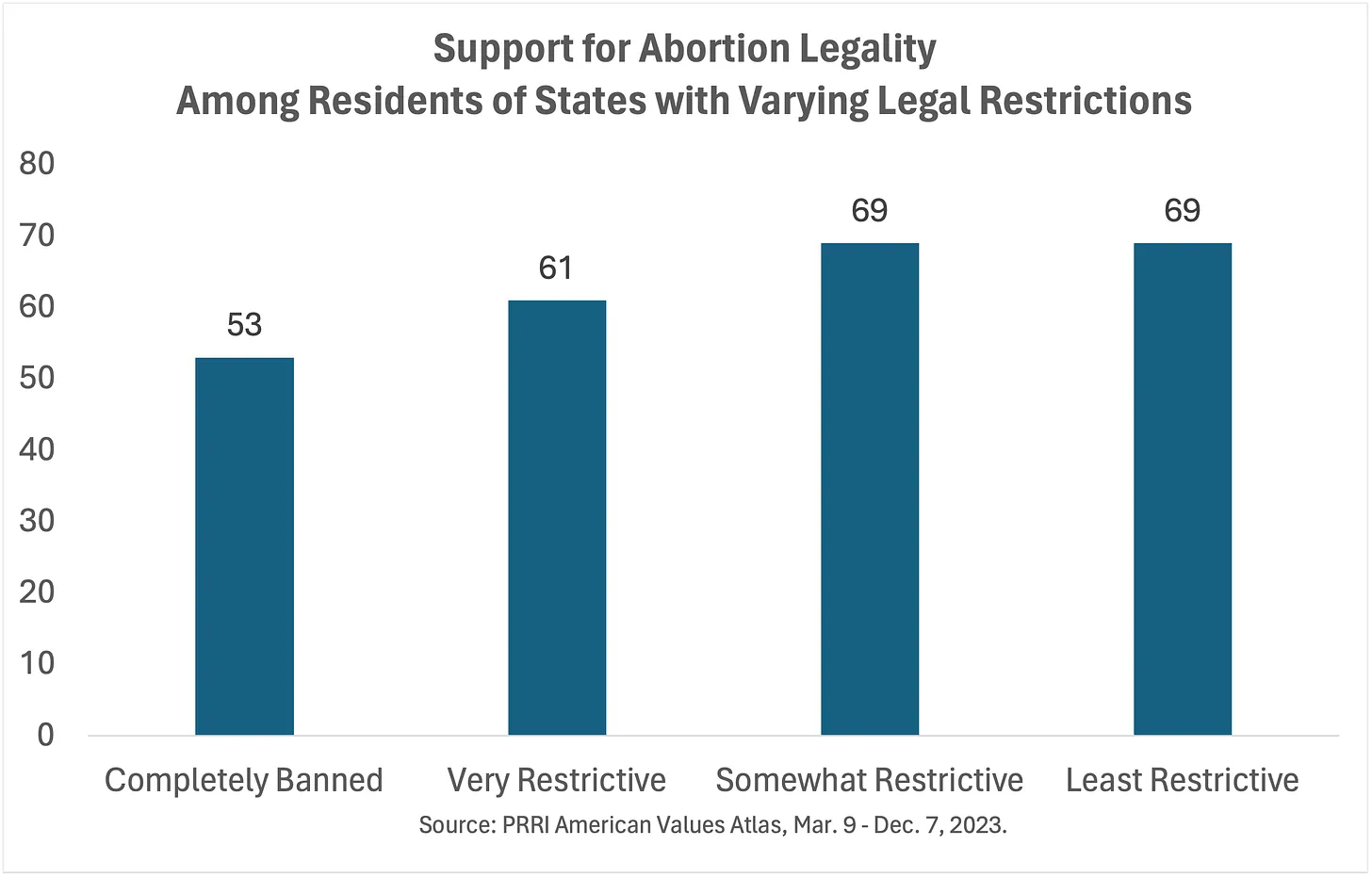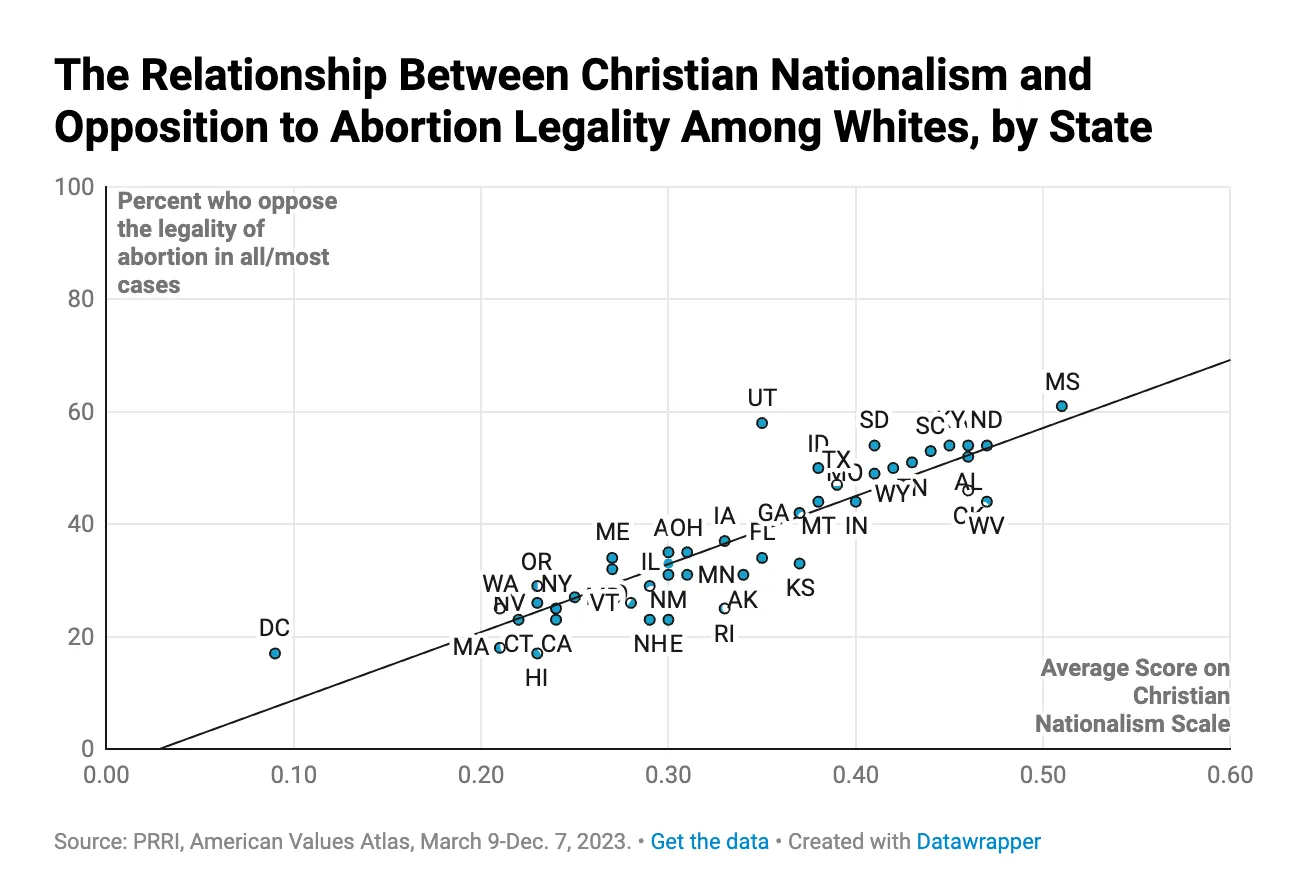PRRI, where I serve as president and founder, just released one of the largest surveys ever conducted on abortion attitudes in America. Throughout 2023, PRRI interviewed more than 22,000 adults as part of its American Values Atlas, giving us not only an in-depth look at attitudes among subgroups at the national level but also insights into abortion attitudes in all 50 states.
This year’s report also includes new analysis of the intersection between Christian nationalist views and abortion legality in each state.
I’m focusing on highlights from the state-level analysis here, but the entire PRRI report is now online and full of insights and charts.
The truth about the religion and abortion
Before I get to the groundbreaking state-level analysis, here’s an important snapshot of support for the legality of abortion by religion. While it may come as a surprise to many, most religious groups today favor the legality of abortion.
In fact, there are only four (out of 16) religious groups in which a majority say abortion should be illegal in all or most cases: white evangelical Protestants, Hispanic Protestants, Jehovah’s Witnesses, and Latter-Day Saints. Even combined, these four outlier groups only constitute one in five Americans.
If you were going to accurately finish the following sentence, “Most people of faith in America believe abortion should be …,” the final words would be, “mostly legal.”

The large sample size in the PRRI study makes it possible to look underneath the national findings and focus on attitudes at the state level. In today’s post, I want to focus on five unique state-level findings:
1. In 45 of the 50 states, a majority of residents believe abortion should be legal in all or most cases.The five states in which less than a majority of residents support the legality of abortion in all or most cases are: North Dakota (47%), South Dakota (47%), Arkansas (46%), Idaho (45%) and Utah (45%).

2. There is no state in which more than 16% of Americans believe abortion should be completely banned. Stated differently, more than 80% of the residents of every state believe abortion should be legal in at least some cases. The states with the highest percentage of residents who say abortion should be illegal in all cases are Kentucky and North Dakota (both 16%), Montana and South Carolina (both 15%), Louisiana and Nebraska (both 14%), Alabama and Arkansas (both 13%), Idaho and Oklahoma (both 12%), and Mississippi, Missouri and Texas (all three 11%).
3. Majorities of residents in blue states (70%), battleground states (64%), and even red states (57%) support the legality of abortion.Nearly two-thirds (64%) of residents in the battleground states of Arizona, Georgia, Michigan, Nevada, North Carolina, Pennsylvania and Wisconsin say abortion should be legal in all or most cases. In these states, majorities of most demographic and religious groups say abortion should be legal in all or most cases.

4. Even in states where abortion is completely or effectively banned, a majority of residents (53%) believe abortion should be legal in all or most cases.Support for the legality of abortion in all or most cases rises to 61% in states that have very restrictive laws, and to 69% in states with less restrictive laws.

5. At the state level, there is a strong correlation between support for Christian nationalism and opposition to the legality of abortion.In the scatterplot below, the upward-sloping trend line through the distribution shows that, overall, the higher a state’s white residents score on the Christian nationalism scale, the more likely they are to oppose the legality of abortion. And the tight clustering of these state dots shows the strength and consistency of that correlation. For example, white residents in my home state of Mississippi have both the highest average score on the Christian nationalism scale (>0.5) and are the most likely to oppose the legality of abortion.

Concluding thoughts: Our two-thirds/one-third country
Abortion is often talked about as one of the central issues dividing America, but this conventional wisdom is misleading. Here’s a thought experiment. How would you characterize an issue that had the following traits:
- Two thirds of Americans — including majorities of residents in 45 of 50 states — generally agree about what the basic contours of public policy related to the issue should be.
- There is general agreement about the issue among the residents of both red and blue states and among the residents of states who have very different laws addressing the issue on the books.
- There is general agreement about the issue across most major religious groups and agreement between most religious and non-religious Americans.
Chances are, you wouldn’t put that policy on the list of issues that are ripping the country apart. And yet, all these statements accurately describe the issue of abortion.
The truth is that we are not polarized on this issue of abortion—at least not if polarization is construed to mean an evenly divided country. Rather, what we have is a vocal and powerful minority attempting to enshrine their beliefs into law, over the objections of nearly twice as many Americans who disagree with them.

Robert P. Jones
Robert P. Jones serves as president and founder of PRRI and is the author of The Hidden Roots of White Supremacy and the Path to a Shared American Future and White Too Long: The Legacy of White Supremacy in American Christianity, which won a 2021 American Book Award.
This column originally appeared on Robert P. Jones’s substack #WhiteTooLong.


